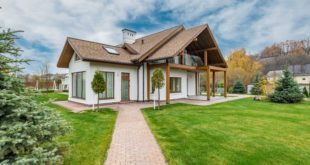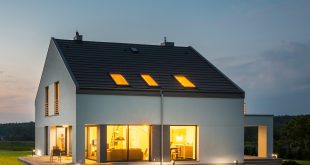Modular building has many benefits: it’s cost-efficient, it’s time-efficient, and it can be just as design-savvy as traditional stick and brick construction. But there is yet another advantage to modular building: it’s greener and more sustainable.
LEED-certification is often the first guideline that comes to mind when considering green building best practices. While LEED-certified modular buildings can and have been constructed, just like traditional construction, it only comes at great expense. There are many simple, cost-effective alternatives that modular builders use every day to reduce construction waste and make their buildings more energy efficient.
First off, the fact that modular buildings are constructed in a factory and then shipped to the site produces less waste than traditional on-site construction. There is also less site disturbance with modular buildings, further reducing the impact on the environment.
Modular buildings commonly incorporate high-tech materials and features for superior efficiency. For example, thick high-quality insulation conserves air conditioning and heat. The use of white roofing material instead of black reduces superheating of the roof and summertime HVAC use. Energy-efficient lighting with occupancy sensors, programmable HVAC systems and window glazing are also frequently incorporated into the design of modular buildings, further improving the energy efficiency and reducing operating costs of these designs.
Modular buildings are a sustainable option. The material used on modular units is both durable and recyclable. So buildings last for years, and can be recycled when the time is right. The key to the sustainability of modular buildings is their ability to be reused for in other locations and for other purposes. Ground offices have been repurposed to ski lodges, storage units, or temporary classrooms, to name just a few.
The end result is a superior, cost-effective, quality-controlled product that can help you meet and exceed your project schedule, operating costs and sustainability goals.
– – – – – – – – – – – – – – – – – – – – – – – – – – – – – – – – – – – – – – – – – – – – – – – – – – – – – – – – – – –
Jeff Dusing is the Creative Communications Manager at ModSpace, a leading provider of temporary and permanent modular building solutions with 80 branch locations across the United States and Canada. ModSpace offers innovative products for a variety of industries, including commercial, education, government, and healthcare. ModSpace offers the best solutions for your space needs such as mobile office trailers, modular office buildings, portable storage containers, modular complexes, and much more.
 Alternative Energy HQ solar power for homes, wind energy, and bio fuel issues
Alternative Energy HQ solar power for homes, wind energy, and bio fuel issues







